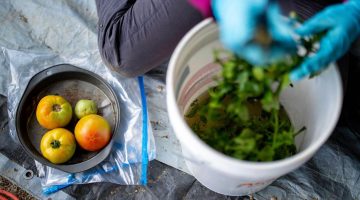The Cooldown highlights UMaine research on PFAS
The Cooldown wrote an article on a toxic group of chemicals called PFAS and featured work done by University of Maine. Researchers at UMaine tested whether or not intercropping could be a helpful way to reduce PFAS. “This study shows that there is no one-size-fits-all recommendation or policy for farmers dealing with PFAS contamination,” said […]
Read more


